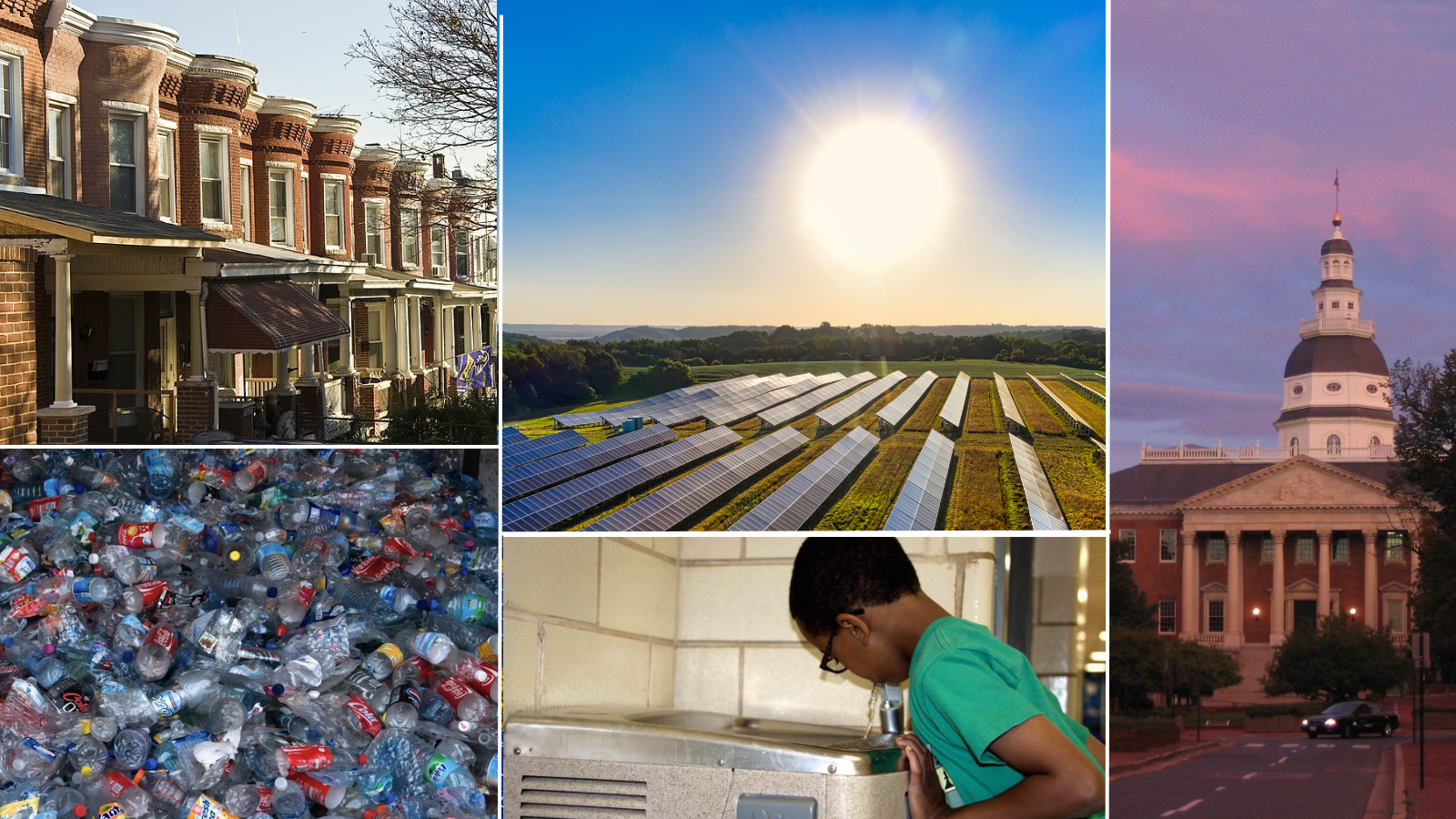Testimony: Declaration of Rights – Campaign Financing Right to Know
Today, we testified in support of SB 895 to enshrine rights into the Maryland constitution for transparency for political spending and for publicly financed elections.
Testimony for SB0895: Declaration of Rights – Campaign Financing Right to Know
Education, Health, and Environmental Affairs Committee
February 23rd, 2022
Position: Favorable
Maryland Public Interest Research Group (Maryland PIRG) is a small donor funded public interest advocacy organization with grassroots members across the state. For fifty years we’ve stood up to powerful interests whenever they threaten our health and safety, our financial security, or our right to fully participate in our democratic society.
We support SB895 to enshrine rights into the Maryland constitution for transparency for political spending and for publicly financed elections. If passed, the language would need to be approved by voters on the November ballot in order to be added to the Maryland Constitution.
In recent years, the Supreme Court has made a series of decisions that have upended aggregate campaign limits and unleashed virtually limitless amounts of money into the political process via independent expenditures, laying the groundwork for what is now known as super-PACs and driving a rise in mega-donor campaign spending at all levels of government. Enshrining these rights in the Maryland Constitution will demonstrate a significant and meaningful commitment to these principles to the Supreme Court and protect Maryland’s laws from legal attacks.
Transparency for Campaign Financing
Our democracy works best with an informed electorate, which is why voters need to have timely information on who is donating to candidates, parties, and other political groups engaging in electoral spending. As the Supreme Court noted in their Citizens United decision, campaign disclosure helps voters make “informed choices in the political marketplace.”
Transparency in political spending is also a critical deterrent for corruption. In Buckley v. Valeo the Supreme Court quoted Louis Brandeis in saying, “Sunlight is the best of disinfectants,” because the possibility of exposure helps “discourage those who would use money for improper purposes.”
Unfortunately, there is growing concern of growing political challenges to disclosure laws and that the Supreme Court may change course on more than a century of precedent on upholding transparency laws.
Dark money megadonors have flocked to both Democratic and Republican parties and candidates, creating a dangerous race to the bottom that leaves everyday voters behind. Transparency laws are not partisan, they are in the public interest.
How this impacts Maryland: Maryland is at the forefront for campaign financing transparency and disclosure requirements. For example, Maryland has reporting requirements for individuals making independent expenditures in political campaigns. Anytime someone spends over $10,000 in independent expenditures or to support a ballot campaign, those expenditures have to be reported within 48 hours and are publicly available immediately. Additionally, an organization or individual reporting $10,000 or more in independent expenditures has to make public the identity of everyone who contributes over $6,000 to their organization or cause. These sorts of disclosures help ensure the public have more knowledge over who is funding elections and political campaigns. Maryland PIRG does not spend money on electoral campaigns, but has made contributions to ballot campaigns, so we have direct experience with this law.
The best way for Maryland to be on record with the Supreme Court on the importance of transparency in campaign financing is to go further than statutory law and enshrine these rights into the Maryland constitution.
As aggregate donation limits have been raised or eliminated at the state and national level, the role of wealthy donors in elections has grown exponentially. The only recourse for voters to make an informed decision about the impact of these contributors is through open, timely, and transparent information about these contributions. Voters have a right to be informed about political spending and know who is contributing to the elected officials that represent them in government.
Public Campaign Financing
This legislation would enshrine the purpose and intent of previous campaign finance laws into the constitution. Since 1974, Maryland code has stated that:
“The General Assembly recognizes that our system of representative government depends in part on guaranteeing that election campaigns are funded by and for the people and on eliminating the corrupting and undemocratic effects of large private contributions. Accordingly, the General Assembly finds and declares that an equitable means of public campaign financing is necessary in these times in order for representative democracy to continue to function effectively.”
The legislation does not establish new public financing programs nor require every county in Maryland to adopt public campaign financing programs. Rather, it ensures that the intent of Maryland state law is applied to elected offices across the state, and every jurisdiction has the option to legislatively create a program for public financing.
The rise of corporate and large campaign contributions has driven up the cost to run for office and forced elected officials and candidates at all levels of government to be increasingly dependent on these donors, giving them less time to hear from and serve their constituents.
Small donor public campaign financing programs allow candidates to run for office with small donations from their constituents and remain competitive with those who accept large and corporate contributions. This serves the dual purpose of reducing corporate and large donor campaign spending and re-engaging the community in the electoral process. This program also aims to expand opportunities to run for office, so candidates of all backgrounds can run based on the strength of their ideas–not access to money. Enshrining public campaign financing programs in the Maryland Constitution will be better for candidates and elected officials, better for the public, and better for Maryland.
These types of programs are popular, effective, and gaining momentum. Montgomery County, Howard County, Prince George’s County, Baltimore City, and Baltimore County have all established public campaign finance systems after approval of voters in their jurisdictions. Montgomery County has successfully run an election using the new system with promising results. In 2021, in a show of bipartisan support, this committee voted to update and permanently fund the state’s gubernatorial public financing program.
Enshrining the right to publicly financed elections into our state constitution will add a layer of protection for our existing public financing programs.
We respectfully request a favorable report.
Topics
Authors
Rishi Shah
Find Out More

Fair Elections in Maryland Counties

Our 2023 Legislative Agenda and Priorities

Testimony: Local Public Campaign Financing – Expansion to Additional Offices

